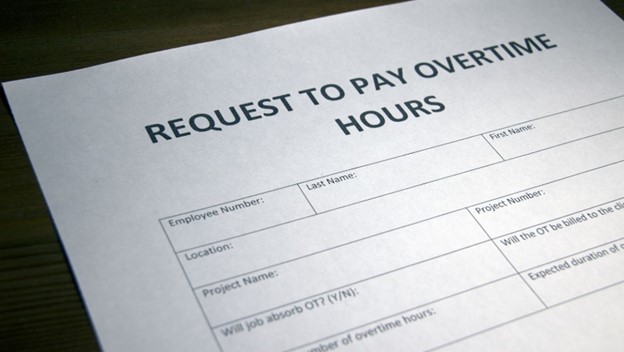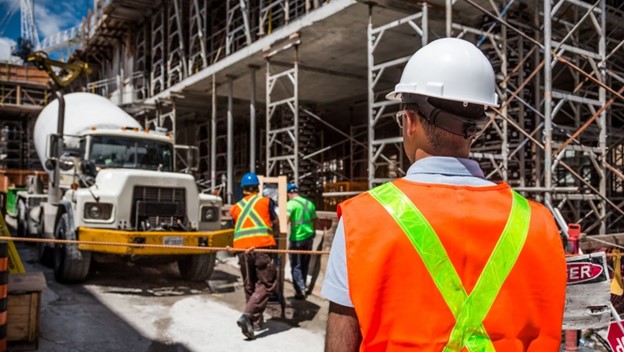In the bustling world of construction, travel time pay is a topic that often stirs discussions. It’s a significant factor that impacts not just the workers’ morale, but also the overall project budget. This article aims to shed light on the intricacies of travel time pay for construction workers, a subject that’s as complex as it is important. So, whether you’re a construction worker seeking clarity, or a project manager aiming to balance the books, this piece will serve as your roadmap to understanding travel time pay.
Travel Time Pay for Construction Workers
 Commute hours rack up swiftly for construction personnel. It’s crucial to grasp the specifics of travel time pay for construction workers. Understanding this involves knowing how it influences employee morale and budget planning for projects. Let’s delve into how this works.
Commute hours rack up swiftly for construction personnel. It’s crucial to grasp the specifics of travel time pay for construction workers. Understanding this involves knowing how it influences employee morale and budget planning for projects. Let’s delve into how this works.
Travel time pay, in most cases, forms an integral part of the compensation package provided by a construction company. Time spent traveling on a day’s work, like from one site to another, typically qualifies for wage calculation. Yet, an important exception exists. Standard commute between a worker’s residence and the primary work location doesn’t generally fall under this category.
Legislation governing these parameters varies across regions, adding an extra layer of complexity. For example, The Fair Labor Standards Act (FLSA) governs in the United States, putting stipulations in place for when travel time becomes compensable work hours.
Criteria for Eligible Travel Time
 Just as construction workers lavish time on their tasks, certain travel scenarios must meet specific criteria to qualify for paid travel time. For instance, time spent traveling during regular work hours constitutes paid travel time. Similarly, employees are eligible for compensation when traveling to a worksite other than their regular workplace, say a construction site in a different city.
Just as construction workers lavish time on their tasks, certain travel scenarios must meet specific criteria to qualify for paid travel time. For instance, time spent traveling during regular work hours constitutes paid travel time. Similarly, employees are eligible for compensation when traveling to a worksite other than their regular workplace, say a construction site in a different city.
Moreover, travel time becomes compensable when it’s in response to an emergency call-out outside of normal hours, bearing relevance to the employee’s primary duties, such as repair or maintenance work. Furthermore, overnight travel also falls under compensable travel time, as per the guidelines stated by the Fair Labor Standards Act (FLSA).
Given the complexities in the determination of travel pay and its regulations, employers and workers alike need a firm understanding of these criteria. Such understanding aids in ensuring fair compensation and avoids potential disputes, fortifying both worker morale and the prudent management of project budgets.
Calculating Travel Time Compensation
 In travel time compensation, certain key factors play influential roles. Firstly, the nature of the journey, namely whether it is home-to-worksite travel, job site-to-job site travel or emergency duty, establishes the basis for payment. An example can be a construction worker traveling from one project site to another within the working hours, which becomes compensable.
In travel time compensation, certain key factors play influential roles. Firstly, the nature of the journey, namely whether it is home-to-worksite travel, job site-to-job site travel or emergency duty, establishes the basis for payment. An example can be a construction worker traveling from one project site to another within the working hours, which becomes compensable.
Monitoring travel duration accurately, irrespective of the time of day, is another critical aspect. For instance, if travel time spans within working hours, it’s considered payable. This includes travel during usual shift times, even during weekends or holidays if they fall within the standard schedule.
According to the FLSA, the compensation rate must at least be the federal or state minimum wage, whichever is higher. Consequently, construction companies must meticulously evaluate these factors to ensure a fair and legally compliant travel time compensation structure. T
Challenges in Implementing Travel Time Pay
The complexities of travel time pay can’t be ignored. It’s a crucial aspect of compensation, morale, and project budgeting in the construction industry. However, understanding the nuances of the Fair Labor Standards Act and other regulations is key. It’s not just about paying for time spent on the road, but also about knowing when that time is compensable. This includes travel during work hours, between sites, and for emergencies or overnight stays. Companies must also factor in the nature of the journey and accurately monitor the duration, regardless of when it occurs. It’s a delicate balance, but one that can lead to worker satisfaction, legal compliance, and effective budget management.

